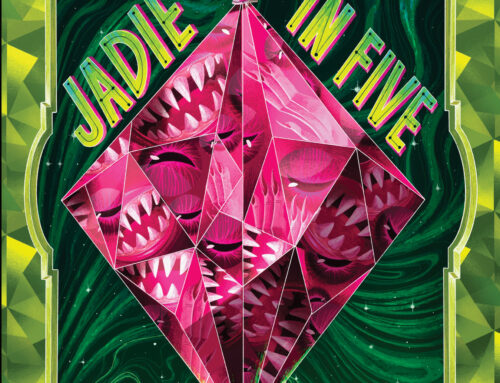Yesterday, the Mafia was lucky enough to be a part of the launch of M.E. Castle’s FAKESPEARE. Today, we are proud to bring you a quick interview with this talented author. You may recognize his name from THE CLONE CHRONICLES, but get ready to check out his latest read.
 Middle Grade Mafia: How would you describe your writing process?
Middle Grade Mafia: How would you describe your writing process?
M.E. Castle: Some writers thrive on building big plot outlines, stitching out a whole sequence of events for a book before they fill in any of the gaps. The next time I meet one of them I’ll ask what that’s like. I love to build worlds, but my plots tend to coalesce around the smaller stuff I come up with. I like to spend a while messing about in a notebook, jotting ideas for characters and events and so forth. I very much work in terms of characters and scenes. I’ll think of a cool character and a scene they could have that takes up three minutes of a story, and use that as a little beacon. Once I’ve got enough of those, I can start to think how they all string together.
MGM: What inspired you to tackle Shakespeare for MG?
M.E.: I’ve always loved Shakespeare, and I don’t think the importance of his work to world literature – and world art, more broadly – can be overstated. When not writing, I work as a stage actor, and Shakespeare has made up the bulk of my early career, showing every sign of keeping that mantle. Shakespeare’s plays are amazing in their ability to get at the heart of all human existence, in joy and sadness, humor and pain, love and death and dreams.
It’s not at all an original statement to say that most people dread and half sleep through their first encounter with Shakespeare. The simple fact is that Shakespeare’s native environment isn’t a classroom. I’m not trying to suggest that it’s unworthy of the immense academic world surrounding it; studying Shakespeare academically is essential to any decent education in the Anglophone world. However, before you study it, you should see and hear it. That’s what it was written for. You can absolutely teach Shakespeare in an engaging and entertaining way, but I think a lot of teachers, assuming beforehand that the class will find Shakespeare dusty and boring, unconsciously decide to treat it that way themselves.
I didn’t write these books to take Shakespeare to any new places. Shakespeare’s already a riotously fun, gag-filled, action-packed romp that happens to be written with poetry among the best in history. I wrote them to bring that aspect of Shakespeare to the forefront, to remind us that these plays weren’t written to be studied. They were written to get at the hearts, minds and funny bones of an audience of all classes, educations and ages, and the fact they’re still so present in our cultural lives is proof enough how very good they were at doing so.
MGM: What character do you feel most mirrors you?
M.E.: I don’t think there’s any one character in these books that’s an author stand-in type. It’s more a case that I divvied bits of myself up among the cast and then filled them in with other aspects. Kyle’s rampant imagination and heroic alter-ego is very much a reflection of how I dealt with a lot of growing up. Likewise Becca, being a writer, naturally has tendencies like mine to narrate and store away scene ideas as she goes. Halley absolutely reflects my academic and inquisitive side full of odd information about niche subjects that most other people don’t care about. I’ve also got an athletic, physically adventurous side you can see in Sam. I guess you could say I’m scattered all over the place in Fakespeare. Maybe even in the Narrator’s wryness and love of making his little story characters hop around following his whims while he sits back and chuckles to himself. Just a little.
MGM: Many writers have a certain place they write or routines they follow before they dive into writing. What do you need to write at your best?
M.E.: Sitting down to write varies a lot day to day. I tend to get most of my work done in the late morning or the midafternoon, but I’ll have an occasional dawn or dusk burst. If I’m writing all day, I need to change locations at least once, often more. My surroundings can get stale quickly if I haven’t really locked into a groove. I’ll migrate around from my apartment to a coffee shop to a library and back. One thing I’ve also gotten back into recently is working in longhand with a pen to start with. Not all the time, but the freedom of movement that a notebook and pen gives you is nice. I can go sit in a park on the grass.
MGM: What’s next for the Fakespeare series?
M.E.: One of my favorite things about books is that there’s always more of them. Shakespeare alone wrote 38 plays (this count varies from 37 to 39 depending on whom you ask and whether you count co-authorship). There are so many places our adventurers can go from here. Maybe we’ll veer off into other classic literature. Maybe we’ll make our way through the whole 38 (or 7 or 9)! I’m very excited about the possibilities before us.
—-
To learn more about M.E. Castle and all of his books, visit his website or “Like” him on Facebook.





Leave A Comment